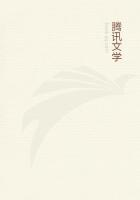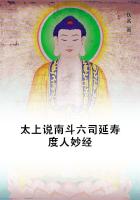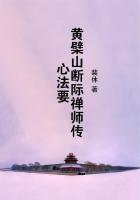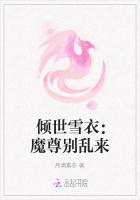Still, the soul [in this intuition within the divine] looks to what is a unity; next it entertains multiplicity, all that is: how explain this grasping first of the unity and later of the rest?
The explanation is that the unity of this power [the Supreme] is such as to allow of its being multiple to another principle [the soul], to which it is all things and therefore does not present itself as one indivisible object of intuition: its activities do not [like its essence] fall under the rule of unity; they are for ever multiple in virtue of that abiding power, and in their outgoing they actually become all things.
For with the Intellectual or Supreme- considered as distinct from the One- there is already the power of harbouring that Principle of Multiplicity, the source of things not previously existent in its superior.
2.Enough on that point: we come now to the question of memory of the personality?
There will not even be memory of the personality; no thought that the contemplator is the self- Socrates, for example- or that it is Intellect or Soul.In this connection it should be borne in mind that, in contemplative vision, especially when it is vivid, we are not at the time aware of our own personality; we are in possession of ourselves but the activity is towards the object of vision with which the thinker becomes identified; he has made himself over as matter to be shaped; he takes ideal form under the action of the vision while remaining, potentially, himself.This means that he is actively himself when he has intellection of nothing.
Or, if he is himself [pure and ******], he is empty of all: if, on the contrary, he is himself [by the self-possession of contemplation] in such a way as to be identified with what is all, then by the act of self-intellection he has the simultaneous intellection of all: in such a case self-intuition by personal activity brings the intellection, not merely of the self, but also of the total therein embraced; and similarly the intuition of the total of things brings that of the personal self as included among all.
But such a process would appear to introduce into the Intellectual that element of change against which we ourselves have only now been protesting?
The answer is that, while unchangeable identity is essential to the Intellectual-Principle, the soul, lying so to speak on the borders of the Intellectual Realm, is amenable to change; it has, for example, its inward advance, and obviously anything that attains position near to something motionless does so by a change directed towards that unchanging goal and is not itself motionless in the same degree.Nor is it really change to turn from the self to the constituents of self or from those constituents to the self; and in this case the contemplator is the total; the duality has become unity.
None the less the soul, even in the Intellectual Realm, is under the dispensation of a variety confronting it and a content of its own?
No: once pure in the Intellectual, it too possesses that same unchangeableness: for it possesses identity of essence; when it is in that region it must of necessity enter into oneness with the Intellectual-Principle by the sheer fact of its self-orientation, for by that intention all interval disappears; the soul advances and is taken into unison, and in that association becomes one with the Intellectual-Principle- but not to its own destruction: the two are one, and two.In such a state there is no question of stage and change: the soul, without motion [but by right of its essential being]
would be intent upon its intellectual act, and in possession, simultaneously, of its self-awareness; for it has become one simultaneous existence with the Supreme.
3.But it leaves that conjunction; it cannot suffer that unity; it falls in love with its own powers and possessions, and desires to stand apart; it leans outward so to speak: then, it appears to acquire a memory of itself.
In this self-memory a distinction is to be made; the memory dealing with the Intellectual Realm upbears the soul, not to fall; the memory of things here bears it downwards to this universe; the intermediate memory dealing with the heavenly sphere holds it there too; and, in all its memory, the thing it has in mind it is and grows to; for this bearing-in-mind must be either intuition [i.e., knowledge with identity] or representation by image: and the imaging in the case of the is not a taking in of something but is vision and condition- so much so, that, in its very sense- sight, it is the lower in the degree in which it penetrates the object.Since its possession of the total of things is not primal but secondary, it does not become all things perfectly [in becoming identical with the All in the Intellectual]; it is of the boundary order, situated between two regions, and has tendency to both.
4.In that realm it has also vision, through the Intellectual-Principle, of The Good which does not so hold to itself as not to reach the soul; what intervenes between them is not body and therefore is no hindrance- and, indeed, where bodily forms do intervene there is still access in many ways from the primal to the tertiaries.
If, on the contrary, the soul gives itself to the inferior, the same principle of penetration comes into play, and it possesses itself, by memory and imagination, of the thing it desired: and hence the memory, even dealing with the highest, is not the highest.
Memory, of course, must be understood not merely of what might be called the sense of remembrance, but so as to include a condition induced by the past experience or vision.There is such a thing as possessing more powerfully without consciousness than in full knowledge; with full awareness the possession is of something quite distinct from the self; unconscious possession runs very close to identity, and any such approach to identification with the lower means the deeper fall of the soul.


